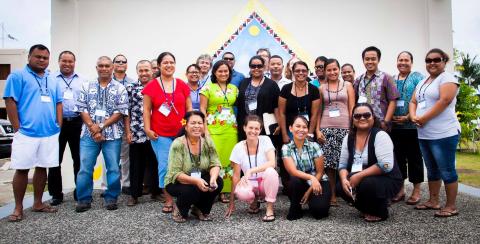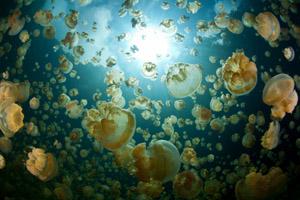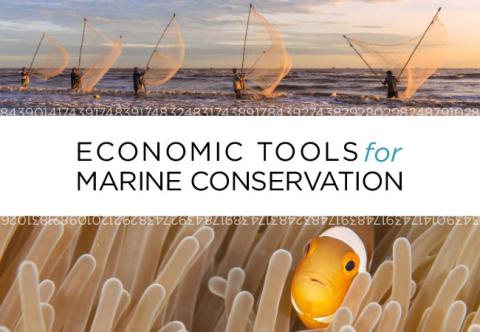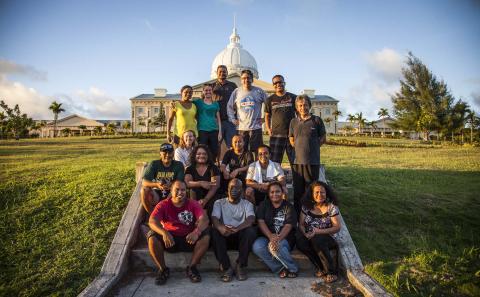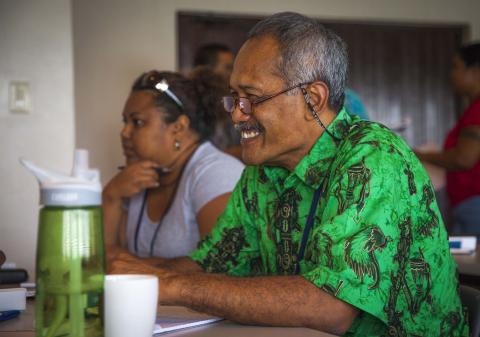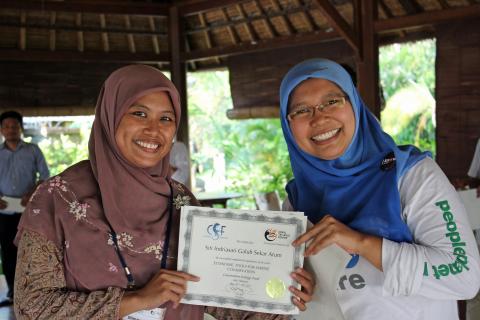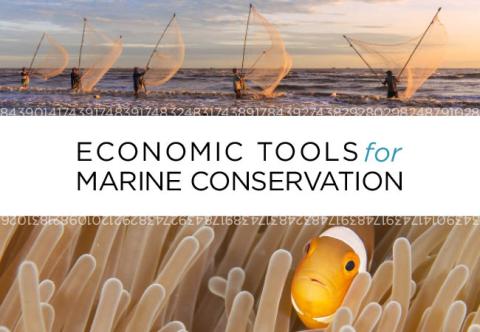
“This course is really helpful for people making decisions or designing projects. By looking at things from an economic perspective, we can take into account the externalities that will likely affect the program.” -Indonesia 2015 Course Graduate
During the last two weeks of May 2015, we conducted our first course in Indonesia. Twenty-one conservation professionals from around the country gathered in Western Bali to explore economics and its relationship to human behavior, fisheries, marine policy, and project design. Representatives from the Indonesian Ministry for Marine Affairs and Fisheries, several Universities, and many local and international NGOs participated in the training and added economic tools to their approach to conservation. We are hopeful that this course will mark the beginning of a deeper relationship between CSF and the conservation community in Indonesia.
“I love this course. It is what I've been looking for to help me to be more confident on valuing natural resources in Indonesia. Great job CSF, thanks a lot!” - Indonesia 2015 Course Graduate
ORIGINAL COURSE ANNOUNCEMENT
Are you at the forefront of marine conservation and management challenges in Indonesia? Conservation Strategy Fund is now accepting applications for an Economic Tools for Marine Conservation training course, to be held May 18-29th, 2015 in Bali, Indonesia. This course is being offered in partnership with the Coral Triangle Center and with support from the MacArthur Foundation.
This course will provide a foundation in the economics of fisheries management and coastal conservation in Indonesia. Topics will include: economic drivers of destructive fishing practices and coastal degradation, valuation of environmental goods and services, incentives and policy solutions for fisheries and coastal resource management, marine spatial planning and protected area financing, and cost-benefit analysis of projects and policies. The training will also include a workshop component to help participants develop concrete applications of these tools.
Participants will gain the theoretical and practical knowledge needed to evaluate marine resource programs and policies, and come away equipped to pursue economically and environmentally sustainable development and management strategies. Policy advisers, conservation practitioners and natural resource managers will be able to make sound economic arguments for the benefits of well-managed fisheries and other marine resources.
Click here to apply now.
"I used to believe that economics and the environment or conservation do not go well together, but this course has given me a toolbox that I believe can build a bridge and connect economics and the environment." -Heidi Sigrah, Kosrae State Department of Resources and Economic Affairs.
Learn how economics can save coral reefs:
BENEFITS
Participants will gain:
- An essential knowledge of basic economic concepts and language.
- Insight into the drivers of marine environmental problems and overfishing, including market and institutional failures.
- Skills to evaluate the costs and benefits of natural resource management and development decisions, including values of environmental goods and services
- The ability to develop economic arguments for the benefits of well-managed fisheries, and to formulate more effective solutions and policies for coastal conservation and fisheries management.
- Practical understanding of the marine spatial planning process and knowledge of the key components of sustainable financing for marine protected areas.
- Invaluable practice using communication techniques to articulate environmental values and economic analysis in a language that communities, businesses, and governments can understand.
"I have gained a lot of economic knowledge and understand how economics can influence decisions in the use of natural resources and sustainability. This course covers both the theory and practice of natural and environmental economics." -Suraji, Indonesian Ministry of Marine Affairs and Fisheries
PARTICIPANTS
This course is for people at the forefront of conservation challenges in Indonesia, including representatives of government agencies, managers of conservation programs and protected areas, and directors of non-governmental and community organizations. Applicants from a variety of disciplines such as biology, law, anthropology, or economics are encouraged to apply. Previous training in economics is not essential. Applicants must be proficient in spoken and written English.
Only applicants working in Indonesians need apply. If you are working in other parts of Southeast Asia and would like to take a CSF course, we invite you to apply to our International Course, being held at Stanford University in August 2015.
Apply now!
"This course was an eye opener. The program gets people thinking about probabilities, better planning, and different approaches to incorporate depending on circumstances." -Eva Buthung, YAP Community Action Program
INSTRUCTORS
Economic Tools for Marine Conservation will be taught by experts in environmental economics who have extensive field experience and understand real-world marine conservation challenges. Our instructors are drawn from CSF staff and leading academic and international institutions such as Harvard University, Duke University and IUCN. Links to individual instructor profiles are provided at the bottom of this page.
Watch CSF Instructor David Johnson explain why economics has a place in conservation:
COST
CSF will cover the cost of tuition, accommodation, materials and 3 meals per day for accepted applicants. Participants are responsible for paying their own travel to and from Bali.
"I plan to use and utilize everything that I learned so far. Developing policy recommendations for Palau's national government is one of my roles and I am extremely grateful for the knowledge I gained at this training. I will apply the topics I've learned to Palau's commercial fishing industries in order to develop a more robust, well informed and analyzed policy for Palau. I didn't realize there was so much to be done, to be learned, that would benefit us in the future!" -Nannette Malsol, Palau Ministry of Natural Resources, Environment & Tourism
Click here to fill out the application form.

Economic Tools for Marine Conservation, Palau 2014



